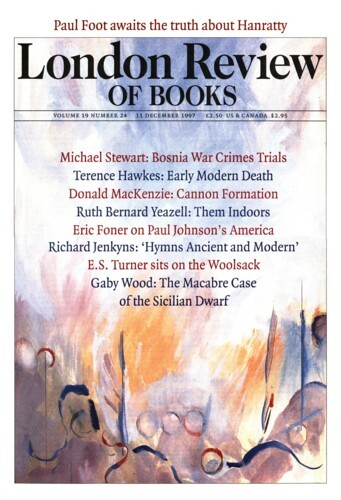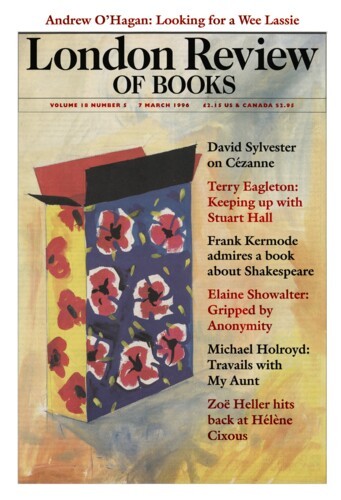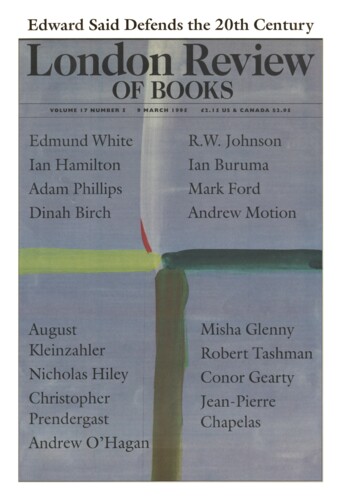At first sight Changing Enemies is a welcome addition to the literature of modern Intelligence. The deliberate anonymity of the Official History of British Intelligence in the Second World War needs to be supplemented with the personal memoirs of those closely involved, and Noel Annan appears well suited to the task. In 1941 he joined the Military Intelligence Division of the War Office, and worked in section MI14, which was the German department. In 1943 he was promoted to be War Office representative on the Joint Intelligence Staff at the War Cabinet Office, and in 1944 he moved to the Intelligence section of Shaef, the Supreme Headquarters of the Allied Expeditionary Force in Paris. He is also well placed to put flesh onto the paper skeleton of Intelligence history, for in 1945, at the final surrender of Germany, he observed at first hand those German generals whose progress he had followed so closely in reports and intercepts, and, on transferring to the political division of the British Control Commission, he saw at close quarters the effect of the war on the German population.
Changing Enemies: The Defeat and Regeneration of Germany by Noël Annan. At first sight Changing Enemies is a welcome addition to the literature of modern Intelligence. The deliberate anonymity of the Official History of British Intelligence in the Second World War...



